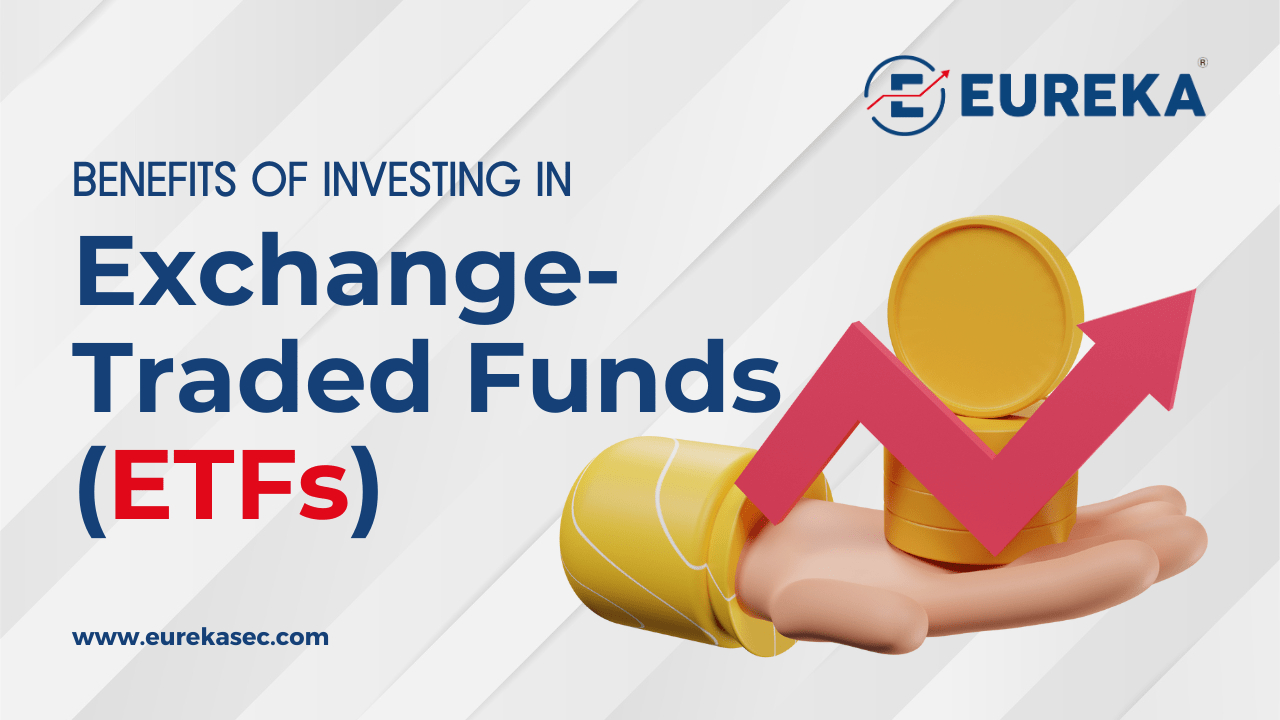
Exchange-traded funds (ETFs) have become increasingly popular in recent years as a low-cost, flexible, and diversified investment options for both retail and institutional investors. ETFs are essentially baskets of securities that track the performance of a particular index, market segment, or asset class and are traded on exchanges like stocks. Unlike mutual funds, ETFs can be bought and sold throughout the trading day and typically have lower fees and expenses. In this blog, we’ll explore the benefits of investing in ETFs in more detail.
Diversification
One of the key benefits of investing in ETFs is diversification. ETFs hold a basket of securities, such as stocks, bonds, or commodities, which provides investors with exposure to a range of different assets. This diversification helps to reduce the risk of investing in any one particular security or asset class.
For example, if you were to invest in a single stock, your investment returns would be heavily influenced by the performance of that one company. However, if you invest in an ETF that tracks a broad market index, such as the S&P 500, your returns will be more closely aligned with the performance of the overall market.
Low Cost
Another benefit of investing in ETFs is their low cost. ETFs are generally less expensive than mutual funds, as they are passively managed and have lower operating costs. This means that investors can gain exposure to a diversified portfolio of assets at a lower cost than they would with a mutual fund.
In addition, ETFs are generally more tax-efficient than mutual funds, as they have fewer taxable events, such as capital gains distributions. This can help investors keep more of their investment returns and minimize taxes.
Easy to Trade
ETFs are traded on stock exchanges, just like individual stocks, which makes them easy to buy and sell. Unlike mutual funds, which can only be bought or sold at the end of the trading day, ETFs can be traded throughout the day.
This allows investors to react quickly to market events or make changes to their portfolios as needed. In addition, ETFs can be bought and sold using a variety of trading strategies, such as limit orders, stop-loss orders, or market orders.
Transparency
ETFs are required to disclose their holdings on a daily basis, which provides investors with transparency into the underlying assets of the fund. This allows investors to better understand what they are investing in and make more informed investment decisions.
In addition, because ETFs are passively managed and track an index, investors know exactly what they are getting when they invest in an ETF. There is no manager discretion or active trading involved, which can help to reduce the risk of underperformance.
Flexibility
ETFs offer investors a high degree of flexibility in terms of asset allocation and investment strategy. For example, investors can choose to invest in ETFs that track specific sectors, such as technology or healthcare, or that invest in international markets.
In addition, ETFs can be used in a variety of investment strategies, such as a core holding in a diversified portfolio or as a tactical allocation to take advantage of market trends or opportunities.
Accessibility
ETFs are accessible to a wide range of investors, from individual investors to institutional investors. This accessibility makes them a popular choice for investors of all sizes, from small individual investors to large pension funds and endowments.
In addition, ETFs can be traded on a variety of investment platforms, including online brokerage platforms and robo-advisors. This makes them easy to access and invest in, regardless of your level of investment experience.
Passive Management
Most ETFs are passively managed, which means they aim to replicate the performance of a particular index or market segment. This can be beneficial for investors, as passive management typically results in lower fees and expenses compared to actively managed funds.
Active managers may try to beat the market by making investment decisions based on their research and analysis. However, studies have shown that the majority of actively managed funds underperform their benchmarks over the long term. By contrast, passive management aims to track the performance of the market, which can result in more consistent returns over time.
High Liquidity
ETFs are highly liquid investments, which means that they can be easily bought and sold on an exchange. This is because ETF shares can be created or redeemed in large quantities by institutional investors, which helps to ensure that there is always a ready supply of shares available for trading.
High liquidity can be beneficial for investors who want to quickly buy or sell shares of an ETF without worrying about the impact of their trades on the market price. It can also be beneficial for investors who want to use ETFs as part of a short-term trading strategy.
Lower Minimum Investment Requirements
Many mutual funds require a minimum initial investment of several thousand dollars, which can be a barrier to entry for some investors. By contrast, ETFs typically have lower minimum investment requirements, and some brokers even allow investors to purchase fractional shares of ETFs.
This can be beneficial for investors who want to start investing with a small amount of money, as well as for those who want to build a diversified portfolio without having to invest a large sum of money all at once.
This can help to minimize the amount of capital gains that investors realize when they sell shares of an ETF. In addition, because ETFs are typically passively managed, they have fewer capital gains distributions than actively managed mutual funds, which can also help to reduce taxes.
Working with a financial advisor can help you navigate the complexities of ETF investing and develop a personalized investment strategy that aligns with your financial goals and risk tolerance.
At Eureka, we specialize in helping clients build and manage investment portfolios using a range of financial instruments, including ETFs. Our experienced advisors can help you understand the benefits of ETFs and develop a customized investment plan that fits your unique financial needs. Contact us today to schedule a consultation and take the first step toward achieving your financial goals.







